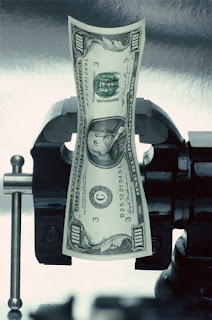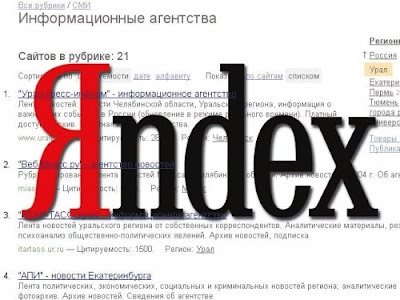If you do not do the economy, the economy itself will you
Ten years ago there was the largest disaster in the history of the IT-industry - "the collapse of the dot-com. In March 2000 the index of shares fell computer and Internet companies on the "high tech" stock exchange NASDAQ. Most IT-companies have burst with the American Stock Exchange shares. During 2000-2001, thousands of Internet companies (mainly in the U.S. and Europe) went bankrupt, were liquidated or sold. Many of their executives were convicted of fraud and embezzlement of investors' funds. The majority of new business models focused on Internet technology firms were not viable. IT-industry entered a period of prolonged recession.
Creator packet technology of computer networks Ethernet Robert Metcalfe somehow derived a formula: the usefulness of any network is directly proportional to the square of the number of its users. Metcalfe certainly never guessed that his formula will one day be almost the main cause in 90 years of XX century, the Internet bubble-economy. Entrepreneurs and investors (mainly American) believed in the universality of this formula and rushed to invest in dubious internet projects. The word "internet" like a magic spell opened the door and wallets of venture funds, which allows companies to start-ups to receive substantial funding for the development of IT business.
 According to Wikipedia, the word "dot-com" (dotcom, dot-com, dot.com) - "has become synonymous with the name of the company, whose business model is entirely based on the work of the Internet. The most widely used in the late 90's. . In fairness it should be noted that the "dotcom bubble" did a lot of money not only Internet companies, and manufacturers of computer hardware and telecommunications corporations.
According to Wikipedia, the word "dot-com" (dotcom, dot-com, dot.com) - "has become synonymous with the name of the company, whose business model is entirely based on the work of the Internet. The most widely used in the late 90's. . In fairness it should be noted that the "dotcom bubble" did a lot of money not only Internet companies, and manufacturers of computer hardware and telecommunications corporations.In the second half of the 1990 dot-com era of rapid development has been increased public attention to the new opportunities provided by the World Network. This soon led to what has plummeted cost of borrowing and investment capital for any projects related to the Internet. That is what led to the emergence of a huge number of firms, startups (especially in Silicon Valley), which are easily obtained by internet projects a significant investment not only from venture funds, but also from the traditional (and rather conservative) financial institutions.
In the stock market "bubble" was due to take-off of shares of already existing Internet companies, the emergence of many new Internet companies and reorientation "traditional" companies in the Internet business. Shares of companies planned to use the network to generate income, phenomenally soared in price. Numerous commentators and economists to justify this madness, arguing that came the "new economy".
From 1995 till early 2000 Internet startups appeared like mushrooms after rain. Capitalization of such Internet giants like Yahoo or AOL, beat all records. Remarkable fact: the market value of the bankrupt subsequently Nortel Networks then exceeded $ 180 billion and entertainment portal from iMTV eponymous television on the first day of the offering of its shares has attracted more than a billion dollars in investments. Turnovers media empire surpassed turnover is traditionally the strongest in the U.S. automotive industry.
Troublemaking old woman from Ohio and Oklahoma overcame its stockbrokers required urgently to sell bought ten years ago, shares of the local steel factory producing and buy, at least, AOL, or, at worst, Amazon.com. While the general euphoria, few realized that in reality, new business models have been ineffective, and large loans, spent mostly on advertising and corporate life of luxury, will soon lead to a wave of bankruptcies.
The term "new economy" entered into circulation in 1998 with the filing of Bill Clinton, during the presidency of which (1993-2001) and place the events described. The core values in the "new economy" were information and technology. Here are the main provisions of the "new economy":
* The rapid growth of the sector, which involves rapid obsolescence of products;
* Limitations pravoprinuzhdeniya in copyright and patent laws;
* The availability of cheap information security;
* Weak binding of enterprises "new economy" to a particular territory;
* Significant innovation costs (research and product development), combined with modest production costs (copying information, support for online services);
* Cost-effective innovations are often too obvious to be protected (for example - such curiosities as an attempt to register the exclusive right to use the command "Print" and "Copy").
However, it is thanks to the dotcom boom we'll have a great variety of free information and online services. News, newspaper articles and stories in the public domain, freeware-programs, games, payment systems, free mail, and social services - all of this legacy Internet fever in the late 90's.
But even in 1995-97 the majority of content and services of serious (not amateur) resources offered solely for the money. But in 1997-98, the producers of content web unexpectedly became the objects over active investing. Sweeping the business community to fashion on the Internet has led investors to invest more and more millions of dollars in a content company. Their business model included the receipt of future revenues from advertising on Web sites and e-commerce. Competition between the content of projects rapidly deteriorated and they started to offer users free of charge to more information and services.
Economic bubbles like the dotcom boom is certainly harmful for the economy because it leads to non optimal allocation and consumption of resources. A crash that usually follows the economic bubble can destroy a huge amount of capital and cause long-lasting downturn in the economy. Actually, in the IT-industry in 2000-2004, it just happened. And a long period without risk of profits simply extends the period of recession - so it was for much of the world during the Great Depression in the 1930's and 1990's in Japan. And the consequences of a collapse of the bubble not only devastate the national economy, but respond beyond its borders. This is about the current general economic crisis that began with the mortgage crisis in the U.S..
Another aspect of economic bubbles - their interaction with the tradition of funds business. Market participants, assets are revalued, are inclined to live beyond their means, because it feels rich ("wealth effect"). But when the bubble suddenly collapses, the holders of revalued assets feel suddenly impoverished and begin to cut their costs as possible. This, in turn, leads to slower economic growth and deepening of the crisis.
But we all understand now. Wiser. But then, at 90, on television, in newspapers, online media and radio broadcasting a continuous stream of information flowing on that economic and technological developments are certain that the U.S. went out on the "crisis-free" way of development, etc. etc.
March 3, 2000 Prudential Securities Investment Fund analysts published a paper in the beginning of which read: "If you're a shrewd trader, then your portfolio should be present hi-tech stocks, symbolizing the new economy." Few at the time suspected that a few days later an informal capital of Silicon Valley's move from San Jose in Twin Peaks.
